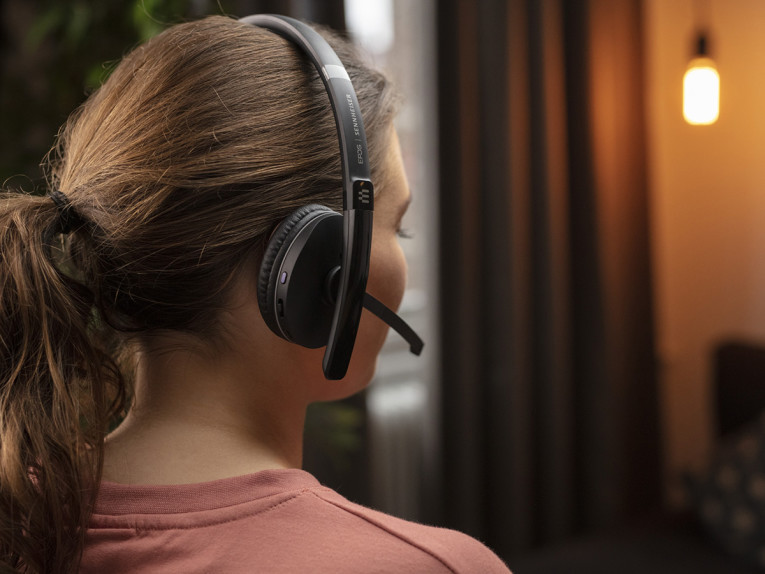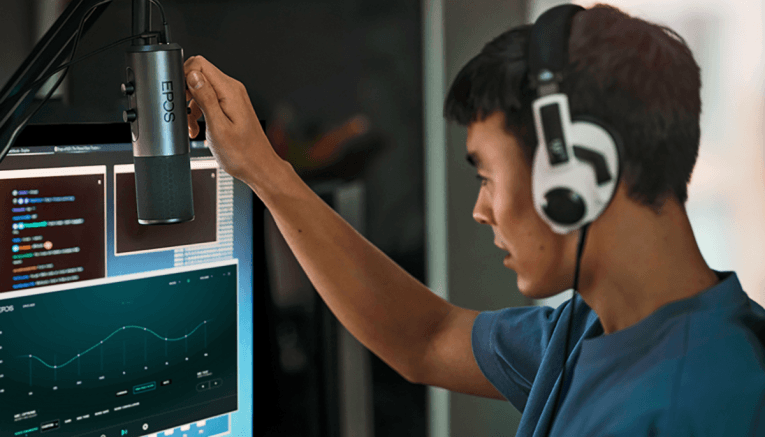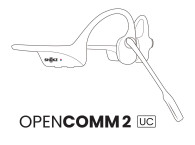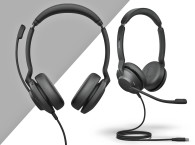
Between March and April 2021, EPOS commissioned a research about the challenges of remote work and the use of technology at the heart of hybrid working. The data was collected by IPSOS Denmark using Online Computer Assisted Web Interviews from a target sample pool of over, 2,500 male and female respondents from the US, UK, France, Germany, Hong Kong and Singapore between the ages of 18-65+. This included respondents working in companies with 50+ employees, decision makers and end-users of audio solutions, all working a minimum of 20 hours per week.
"In the last year the lives of professionals have been transformed. While hybrid work is now a reality, professional end users today are losing 31 minutes a week to poor audio – an increase from 29 minutes a week in 2020 – despite growing familiarity with remote working situations. Suggesting that although hybrid working promises greater flexibility for both individuals and businesses, the changes needed to optimize the model remain a challenge and audio technology is a primary factor," states EPOS in the report.
According to the report findings, employees see hybrid working as the future, and there is broad agreement that hybrid work presents new opportunities. But there is a discrepancy between the expectations of company decision-makers and employees about the nature of work post-pandemic. More than half (53%) of global decision makers anticipate that most employees will work from the office, whereas just 26% of employees think the same. By contrast, 36% of employees believe they will work more from home compared to before the pandemic, whereas only 30% of decision-makers think this.
"Employee attitudes towards work have shifted in the past year and the move to hybrid presents a significant opportunity for businesses. Those businesses which embrace a thoughtful and strategic approach to the future, considering the views of their workforce, are likely to thrive and attract the best talent.
Organizations can choose to invest in high-quality, engineered audio solutions to meet the demands of on-the-go work. And those that do may edge the competition in the post-pandemic world," the company adds.

Solutions for High-quality Audio
Missing important information shared by clients or asking people to repeat themselves during virtual meetings can damage client relationships and adds a barrier to securing new business. In a hybrid setting, bad audio poses a barrier to professionalism more damaging than a scuffed shoe or weak handshake: 60% of decision makers believe better sound will help them retain clients, while 71% believe that it will help prevent lost pitches in the future.
With the right technology solutions, EPOS found that 64% of end users say that quality audio solutions allow them to capture critical information while 61% believe the right solutions empowers them to appear professional. Employee wellbeing is tied to this and is critical to the success of any organization. Technology designed for the quiet environment of an office often doesn’t work for a remote set-up. As such, many employees struggle to maintain their workflow when working out of the office, due to the emotional impact of poor audio. 26% of employees are left feeling frustrated, irritated, or annoyed; and 19% experience moments of stress.
"The importance of high-quality audio to the success of hybrid businesses cannot be overstated, with 83% of decision-makers reporting that poor audio experiences have caused their company issues over the past 12 months, with 20% citing that it led to dissatisfied clients. In the extreme, 15% of respondents say audio issues have resulted in a financial hit by losing a key deal or contract. And 17% reported financial loss due to incorrectly carrying out a task."
Global decision-makers have caught onto the importance of using the right audio technology and are acting by investing in high-quality solutions. 86% said they are considering acquiring new audio equipment in the next year. By acting now, decision makers can address immediate audio issues in their organization and mitigate the risks they pose to the business in the long-term.
“Businesses have an opportunity now,” says Jeppe Dalberg-Larsen, President at EPOS. “There are concrete steps businesses can take to bridge the gap between office-based and remote working – and this starts with ensuring that everyone’s voice can be heard. When over 80% of decision makers say that poor audio is causing issues – and that these issues include dissatisfied clients and direct loss of business, we can no longer afford to ignore the problem. With more than a third of employees globally wanting to work remotely in the future, we need to provide them with the technology they need to feel confident to reach their full potential at work. Only by doing this can we navigate the hybrid model and set a new standard of professionalism that – rightly – makes what we say central to success.”

Products for Business and Gaming
EPOS continues to expand its portfolio of high-end audio and video solutions, focused on design, technology and performance. The establishment of the Danish founded company was based on the decision to end the Sennheiser Communications joint-venture between Sennheiser Electronic and Demant, a leading audio and hearing technology group, with headquarters in Copenhagen. Alongside the introduction of its own-branded portfolio, EPOS continues to sell the current Sennheiser Communications portfolio co-branded as EPOS | Sennheiser.
Recently, EPOS entered a new product segment with the introduction of the B20 broadcast microphone ($199.00 USD). While being marketed as a gaming product, the B20 is also targeted at streamers and content creators seeking studio-quality microphone audio. Using 3 condenser capsules, this USB-C design is compatible with PC and Mac computers, as well as PS4 consoles, delivering 24-bit/48kHz audio, and allows users to select between four different polar responses - cardioid, stereo, bidirectional or omnidirectional - supporting multiple application scenarios.
The B20 microphone also includes integrated audio controls for volume, gain and mute and includes a headphone jack for real-time voice monitoring and game audio mixing. With a refined aluminum design, it ships with a dedicated desk stand that allows for perfect fit and adjustability, while a 3/8" thread seamlessly connects to boom arms for a range of added positioning options.

And directly targeting the hybrid workforce, EPOS also launched the ADAPT 200 Series, a new wireless headset certified for Microsoft Teams. This lightweight model was already developed to meet the requirements of a flexible workforce with shifting work environments. The headset features soft, thick ear pads, and a foldable boom arm with a noise cancelling microphone to augment the conversation experience with EPOS Voice technology. There are four variants of the ADAPT 200 for use across office, home, remote and travel environments, supporting different types of connectivity, including either a USB A or USB C dongle for old PCs without Bluetooth.
www.eposaudio.com







